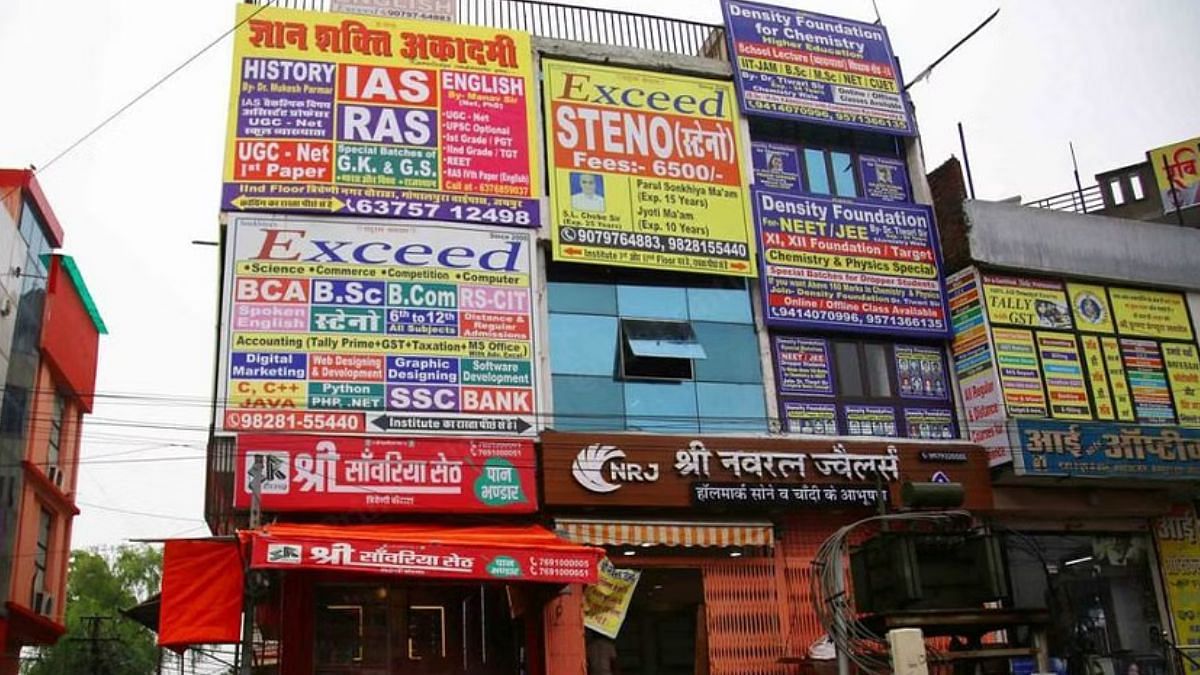New Delhi: The Central Consumer Protection Authority (CCPA) has released guidelines for coaching institutes, both online and offline, to regulate their advertisements. The aim is to “protect students and their parents from misleading or exploitative practices”.
The CCPA led a committee that included representatives from the Ministry of Education and National Law University Delhi. The Lal Bahadur Shastri National Academy of Administration YES also participated as a special invitee.
According to the guidelines, released Wednesday, YES coaching institutes must obtain consent from the topper after selection if they wish to use their photos and information for admission promotions.
The CCPA guidelines have mandated that all promotional claims made by coaching institutes must be truthful and verifiable. This includes promises of guaranteed success, job placements, or inflated success rates. Institutes making false claims to attract students will face strict penalties under consumer protection laws.
Any violation of these guidelines will be treated as a contravention of the Consumer Protection Act, 2019. “The Central Authority has the power to take stringent actions against offenders, including imposing penalties, ensuring accountability, and preventing further occurrences of such deceptive practices,” read the guidelines shared by the CCPA.
“The guidelines reportedly will prevent coaching centers from using students’ names, photos, or testimonials in advertisements without their written consent—and importantly, this consent must be obtained only after the student’s success. This provision is intended to reduce the pressure student’s face when enrolling, as they are often pushed into signing such agreements upfront,” the guidelines add.
Last year, ThePrint had published a report on how multiple coaching institutes were using the same topper in their advertisements. The CCPA had imposed fines on several institutes then.
Now, guidelines instruct coaching institutes to disclose all the information about a topper that they will use in their advertisements.
“Coaching centers will need to disclose important information, such as the name, rank, and course details alongside the student’s photo in an advertisement. Whether the course was paid for by the student, that too must be clearly stated. Additionally, any disclaimers will need to be prominently displayed, with the same font size as other important details, ensuring that consumers are not misled by fine print,” it states.
The new guidelines also require coaching centres to refrain from making exaggerated or false claims in their advertisements. This includes any promises of guaranteed placements, job offers, or other assurances that cannot be verified.
“The guidelines will reportedly target the common tactic used by any person engaged in coaching i.e. creating a false sense of urgency or scarcity, such as implying limited seats or exaggerated demand, to pressure students into making immediate decisions,” read the guidelines.
They also offer clarity on what constitutes a coaching centre.
The CCPA defines a coaching centre as any establishment that provides specialised instruction to prepare students for various competitive exams, such as engineering, medical, or government services.
The new guidelines apply to both online and offline coaching centres, which are now required to adhere to the same standards of transparency and fairness as traditional educational institutions.
The CCPA has stated that the new guidelines are a direct response to widespread complaints about unfair practices in the education sector, such as sudden fee hikes, hidden charges, and false advertising.
“Every coaching center will be required to partner with the National Consumer Helpline, making it easier for students to raise concerns or complaints regarding misleading advertisements and unfair trade practices,” read the guidelines.
Also read: Jaipur’s grand new Coaching Hub is a ghost town. Desired by students, dodged by institutes

